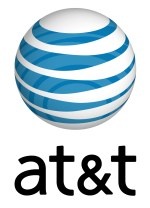 Federal court filing argues against Justice Department's challenge to proposed merger of AT&T and T-Mobile.
Federal court filing argues against Justice Department's challenge to proposed merger of AT&T and T-Mobile.
If the $39 billion deal goes ahead, AT&T would become the biggest carrier in the United States, jumping above Verizon Wireless. It is currently the second largest provider in the United States, while T-Mobile is the fourth largest.
The Justice Department filed a lawsuit to stop the deal from going ahead last week, citing concerns about competition and prices for consumers. The Justice Department views T-Mobile as an innovative, discount carrier that helps to keep wireless prices down in the market.
"T-Mobile has not been a meaningful or unique innovator in terms of network development and deployment, nor is it likely to become one in the foreseeable future," AT&T argued in the court filing, made with the U.S. District Court for the District of Columbia. It wants the court to allow the deal to go ahead and force the Justice Department to pay the costs of this challenge.
The filing argues that the merger would free up spectrum, providing some relief to U.S. smartphone users who are consuming increasingly large amounts of wireless data.
On competition, AT&T and T-Mobile argue that the Justice Department's analysis is too simplistic, looking at it from a national standpoint without taking local markets into account. They argue that 90 percent of U.S. consumers currently have at least five carriers to choose from.
The Justice Department filed a lawsuit to stop the deal from going ahead last week, citing concerns about competition and prices for consumers. The Justice Department views T-Mobile as an innovative, discount carrier that helps to keep wireless prices down in the market.
"T-Mobile has not been a meaningful or unique innovator in terms of network development and deployment, nor is it likely to become one in the foreseeable future," AT&T argued in the court filing, made with the U.S. District Court for the District of Columbia. It wants the court to allow the deal to go ahead and force the Justice Department to pay the costs of this challenge.
The filing argues that the merger would free up spectrum, providing some relief to U.S. smartphone users who are consuming increasingly large amounts of wireless data.
On competition, AT&T and T-Mobile argue that the Justice Department's analysis is too simplistic, looking at it from a national standpoint without taking local markets into account. They argue that 90 percent of U.S. consumers currently have at least five carriers to choose from.













